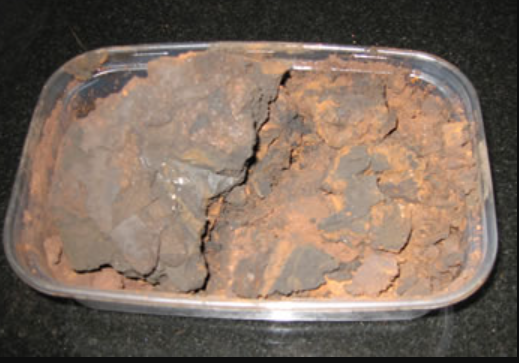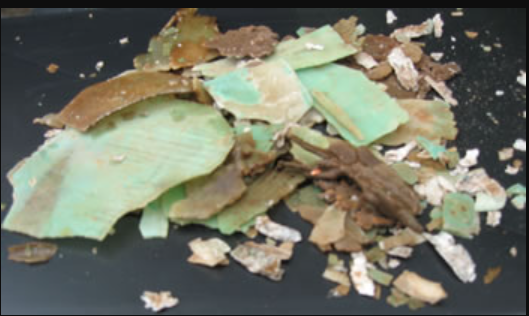“Boiler De-scaling”? – What Is It?
Are you interested in boiler de-scaling? Maybe you are hearing banging pops and whistles and a lot of boiler noise; either way, de-scaling is incredibly important, and it is something that you should get done on a regular basis, although fortunately not very often. If you don’t get your boiler de-scaled on a regular basis, then you may find that your water goes hot then cold and you may also find that you experience boiler kettling as well. This is something that you want to avoid at all times and it could cause you serious problems later down the line as well. Take a look below to find out everything you need to know about boiler de-scaling:
Corrosion

There are two main processes involved when it comes to de-scaling. The first would be to clean out the corrosion deposits that might have accumulated in your system. This can be done by using de-scaling chemicals and it can also stop your noisy boiler from breaking down in the future as well. The second method would be to clean out the hard water deposits, and if this is the case, then acid cleaning may be an option for you. Normally, power flushing equipment is used to de-scale the boiler, and the two processes are very similar, even though the end results aren’t the same. With power flushing, a heating system is first connected to a very large pump. This is full of chemicals and clean water, which is then circulated around the heating system itself. The pump forces these chemicals at very high speeds through all of the radiators, and it helps to remove any metal deposits that might be present. The dirty liquid is pumped out of the other end, and it is replaced with clean and fresh water with an added neutralising agent. This is so the chemicals don’t affect the system itself and it also stops them from corroding the metal as well. This process normally takes anything from a couple of hours to a whole day to complete, and many professionals state that if your radiators are especially bad, you should do one hour per radiator.
De-scaling

De-scaling is required when your heat exchanger builds up an excessive amount of calcium. When this gets too much, it stops the water from accessing the heat source and this stops it from performing to the maximum efficiency. It should be noted that this only happens with heat exchangers that carry fresh tap water, and sealed systems normally contain a certain amount of calcium, which is normally about 30g. Fresh tap water, on the other hand, continues to deposit calcium in the system, and this means that over time, it can build up. Combination boilers and thermal stores are notorious for this problem, and if you don’t get it sorted, it could cost you further down the line. You may experience things like reduced water flow, a reduced temperature, fluctuating water temperature or all of the above, so this is certainly something that you need to keep note of. In extreme cases, the calcium deposits can seal off the water entirely, and in instances like this, you may experience no water flow at all. Either way, when this happens, your only answer would be to replace the heat exchanger or run some pump acid through the system. The pump acid acts as a de-scaler so it is important to make sure that you run it through for at least an hour or so. You will also find that this process is much simpler when compared to power flushing, as you actually only need one item in order to start the process. This would be the heat exchanger, and this connects the pump to the taps and it is a straightforward process from there.
Is De-scaling Important?
Limescale can certainly be damaging and it can really affect the lifespan of your boiler as well. Not only this, but it can also affect the energy efficiency of your central heating system, so it is certainly something that you need to keep an eye out for. Some building regulations specify that if your hard water exceeds 200 PPM, the boiler will need to be chemically treated in order to reduce the limescale build-up. So, how do you prevent limescale build-up, and what can you do to try and stop it from getting any worse?
The first step would be to install a scale reducer. An electronic scale reducer will help you to reduce the amount of build up and it can be installed onto a horizontal or vertical pipe. If you want to remove your limescale, you will need to use a hot water system, a storage cylinder, some pipe work and taps. After you have turned off the boiler and any immersion heaters, make sure that you tie up the ball valve. If you don’t want to do this, simply isolate the mains water supply. After you have isolated the cold storage tank, turn on all the hot water taps to drain the system. Once this has been done, make sure that you turn the taps off again and add any required chemicals.
You may need to dissolve the chemicals in warm water, but once this has been done, introduce it to the cold tank. You will then need to refill the system until the water covers the cylinder feed, but this can be done quickly and easily if you have the right equipment on hand. Once you are confident that your set-up is done, turn on the boiler or your immersion heater and heat up the acid in some hot water until it reaches around 50-60°C. You will need to maintain this temperature for around 4 hours while also opening the hot water taps every 10 minutes or so. When all this has been done, all you need to do is turn off the boiler, drain out the hot water and some of the cold water from the tank before releasing the ball valve. You will also want to rinse out the hot water system as well, and this can be done by simply opening up all of your hot taps. Test kits are available to ensure that all the chemicals are gone before using the taps for domestic use. It might also be worth noting that your cold water tank should be rinsed as wellbecause some acid may have entered the system, and this is something that you may want to avoid.

As you can see, de-scaling your boiler is especially important and by doing so, you can prolong the life by a matter of years. Contact your boiler scaling provider today to find out more about boiler de-scaling and how it could benefit you.
